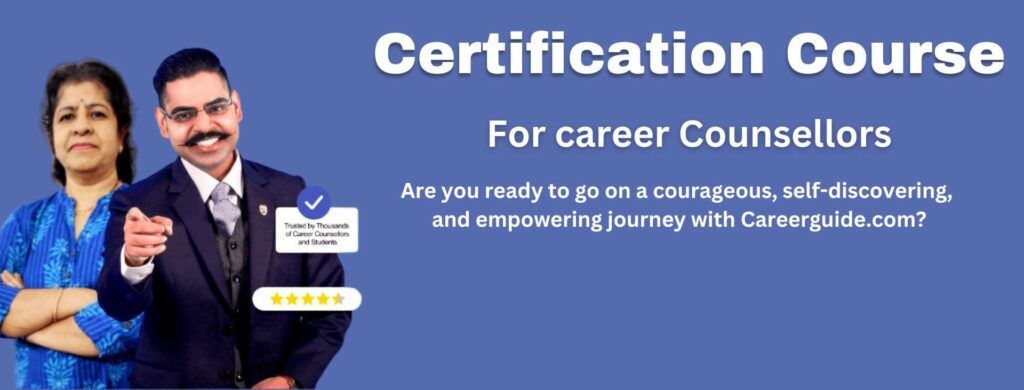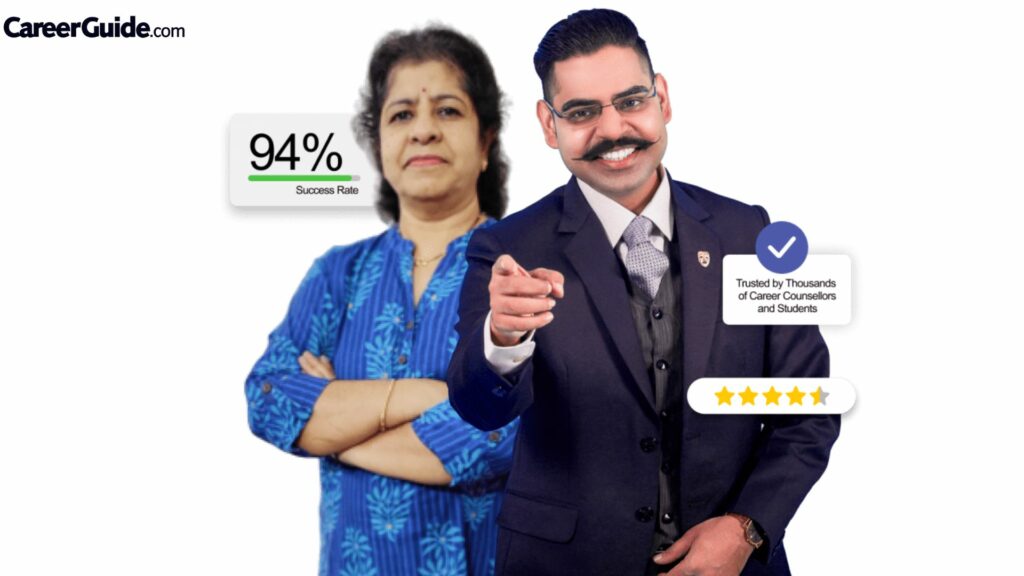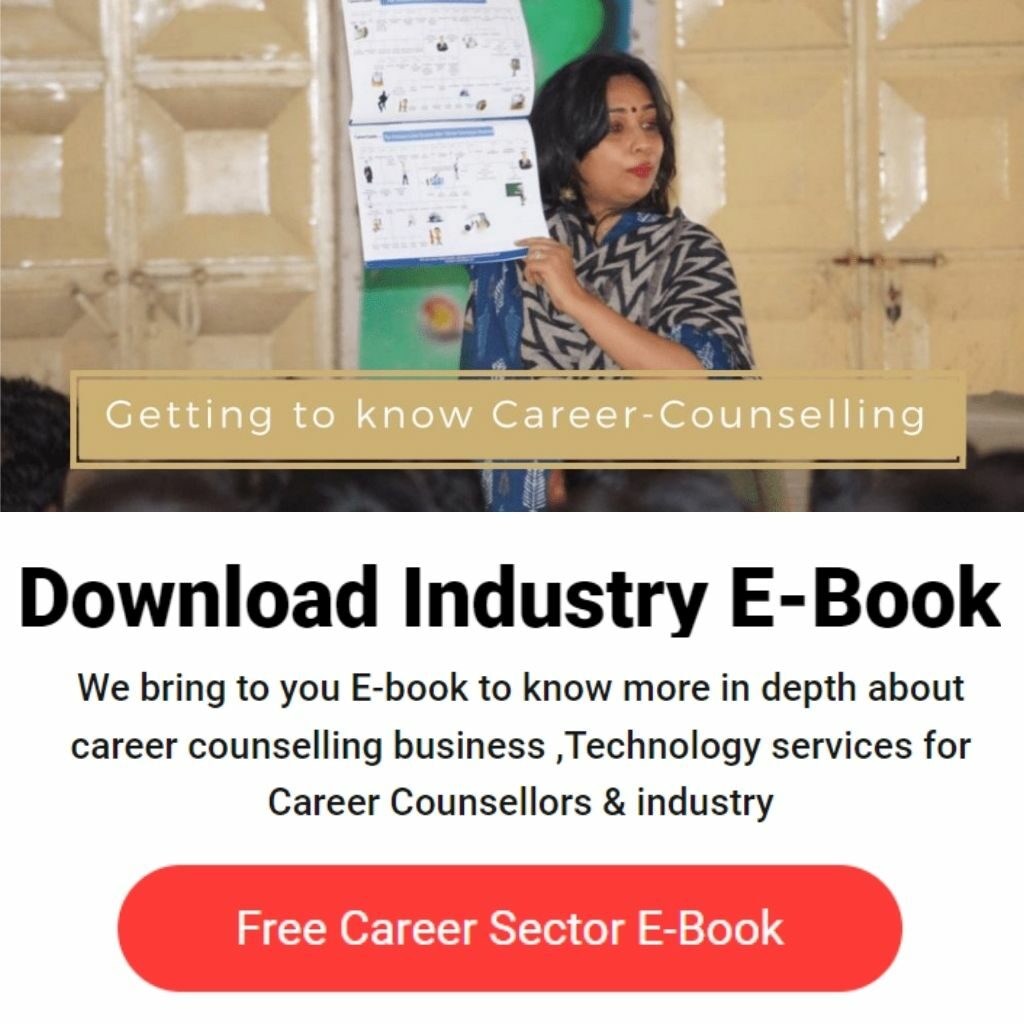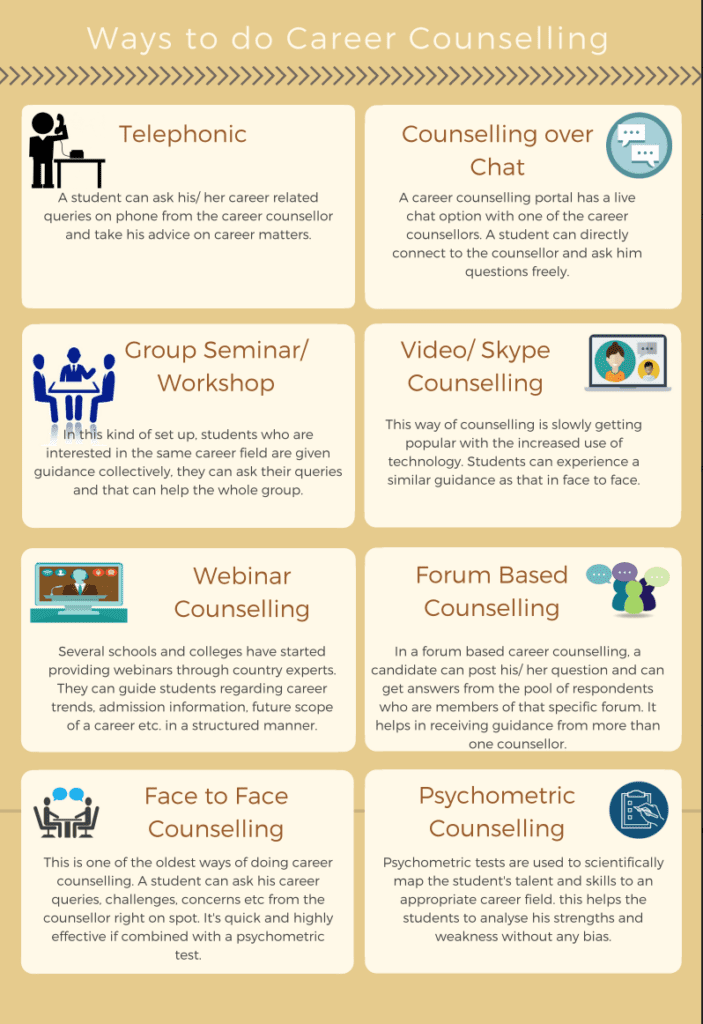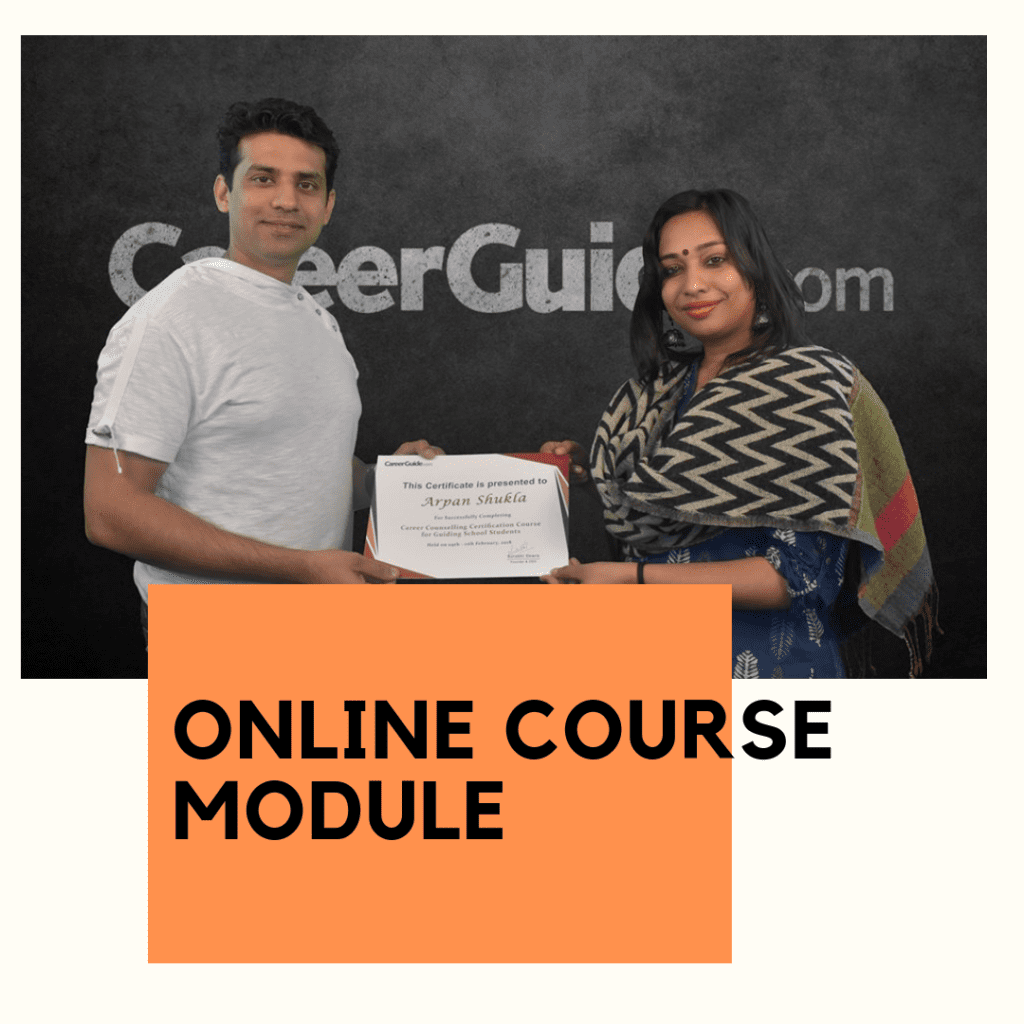Career counsellors play a very important role in shaping the education, career, mental health and wellness of their clients. A cooperative relationship built between the Career counsellor and the client that empowers the client to accomplish his/her goals is called professional counselling. Counselling can be of different types namely, individual counselling that focuses on the mental health and growth of the individual, group counselling that Focuses On Group Interaction, Marriage Counselling that focuses on overcoming the conflicts between couples and building a stronger relationship. Here is an article on 8 Career Counselling Skills You Need To Know .
Table of Contents
Counsellors use some effective career counselling skills that help them to listen and understand the client more efficiently. The skills could be either Building Rapport, Nonverbal Communication Or Actively Listening. There are several counselling techniques, skills and processes that best career counsellors use on the client for a better counselling process to be conducted.
These skills can benefit anyone from their application but the career counsellor needs to practice them thoroughly. A career counsellor needs to be genuine to understand the client. Career Counselling skills can be referred to as the art of listening.
Focusing
A person usually undergoes several problems before seeing a counsellor. Focusing here helps the counsellor to be attentive to that one single problem that is the most important among all. With correct focus, the counsellor can easily identify the central problem and can put a hold on the rest of the subsidiary ones. Know more about CAREER COUNSELLOR’S POWER-UP PACKAGE .
Asking Questions
This is a very basic skill that every career counsellor possesses. He needs to understand the exact problem and for that clarifying and asking questions is a must. Until and unless the counsellor is not fully aware and clear about the problems he cannot come to a conclusion. The questions asked can be of 2 types either closed or open. Close is the one that could be answered from a yes or no whereas open being the ones that support more of the deeper conversation and exploration to problems. Be genuine always. It is okay to ask again and again till you are not clear about the problem. It’s alright to ask for further information if needed.
Observing and Attending
This is the most important skill as you need to observe, attend and listen to the client thoroughly. The job of the counsellor begins with careful and undivided listening. Giving the client your undivided attention, timely nodding, active listening, and verbal listening by using the words yes, keep going, etc.
Silence
Sometimes remaining silent is crucial, to understand and observe what the client is actually trying to say. The power of silence plays a very prominent role during the counselling process. Remaining silent at times can help you think, understand better and observe more. Most of the talking is to be done by the client, and the therapist must do his job that is listening.
Reflecting
It is a part of counselling it can be done through repeating a shorter version of the client’s story and adding his thoughts and feelings into it, that is, paraphrasing. Reflecting demonstrates that the counsellor was attentive and active throughout the conversation and understands the client deeply. Do not sound like a parrot, use your own words to reflect.
Reflecting shows that the counsellor has understood and heard the emotions of the client and this assures the client he has been listened to and understood. While reflecting back, the therapist need not say a lot, he only has to brief things up, the client should do most of the talking. Never use a shocked tone while listening, otherwise, the client may feel as if he is unacceptable. Always be calm and listen with a neutral expression.
Building a rapport
Building rapport means developing a sense of connection with the client. It can also be called empathy where you put yourself in the client’s shoes so that you are able to express understanding of the feelings of your client. This could also be called building a client-therapist relationship through which trust between the two can be increased and a good sense of connection could be established.
Instantaneosness
Instancy or immediacy means how the therapists show and express their feelings in response to their client. This shows that the therapist can totally feel and understand their client and his problems. Immediacy shows that the therapist was highly aware throughout the whole session.
Summarizing
Summarising means condensing the feelings and emotions of the client and what the client actually wanted to say. It is easy and helpful for a therapist to conclude the session at the end. If he was listening carefully and understanding the client thoroughly. It is a type of paraphrasing again as the therapist needs to provide a short overview of the client’s problems and add what he thinks and feels into it. Use your own words while summarising so that you do not sound like a parr.
Become A Master With Careerguide
The “Career Counsellor Certification Course” from CareerGuide is a 50+ hour, self-paced, lifetime access online course for career counsellor certification. This will assist in giving you curriculum with the use of many Case Studies, Scenarios, FAQs, and Quizzes. Everything you need to become a successful career counsellor is in the curriculum. This course consists of lessons that help to develop your skills and become a master career guide.
FAQ's Career Counselling Skills You Need To Know
Q: What are the essential skills required to become a successful career counselor?
A: Some essential skills required for a successful career counselor are active listening, communication, empathy, critical thinking, problem-solving, decision-making, time management, and adaptability.
Q: How important is communication in career counseling?
A: Communication is an essential skill for career counselors as it helps them establish a connection with their clients, understand their needs and concerns, and provide appropriate guidance. Effective communication also helps in building trust and maintaining a healthy relationship with clients.
Q: Why is empathy crucial in career counseling?
A: Empathy is crucial in career counseling as it helps the counselor understand the client’s emotions and experiences. It helps the counselor create a safe and non-judgmental environment where the client feels comfortable sharing their thoughts and feelings.
Q: What is active listening, and why is it important in career counseling?
A: Active listening is a skill that involves listening to the client’s words, tone, and body language with attention and without interruption. It helps the counselor understand the client’s concerns, perspectives, and needs, which is crucial in providing appropriate guidance and support.

